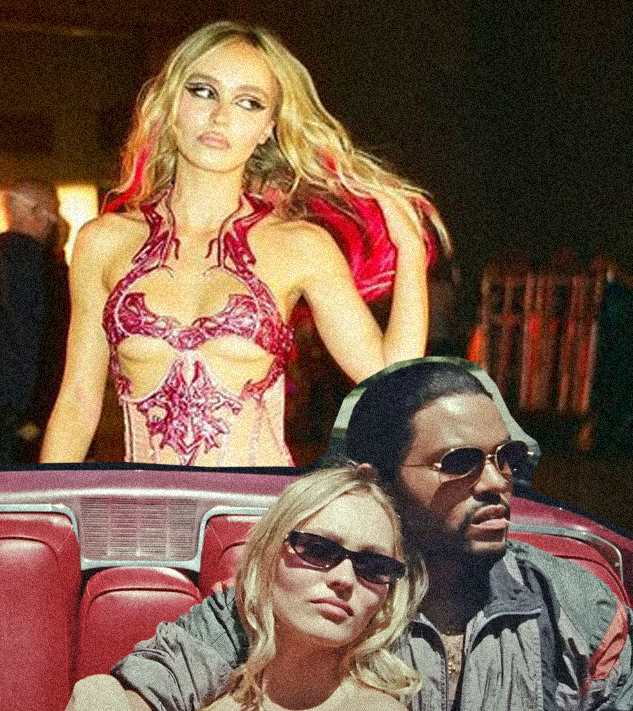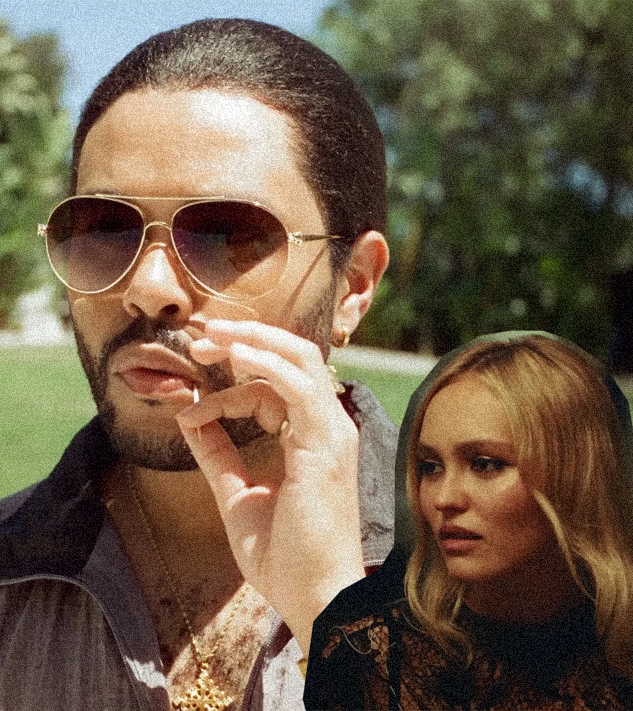Idolising Sam Levinson: Can Problematic Art Ever Be Worth It?
For many, the release of Sam Levinson’s The Idol offers comforting familiarity; it’s a guilty-pleasure we can sink into, before scrolling timelines that also remind us of heady 90s subcultures and harmful beauty standards. This is heavy, sexy, salacious TV that could have been taken straight from the pop culture era of Pete Doherty and Kate Moss dangling themselves out of windows, cigarettes held between teeth as they laugh together.
We want the drama, the aesthetic, the story of a young woman exploited by a misogynistic industry, because we know it well. Just like with bad relationships, bad habits, bad friends, what you are familiar with feels good. But if the whisperings that leaked from the production of the show are anything to go by, unlike Levinson’s critically acclaimed series Euphoria, The Idol doesn’t seem to be foraying into hedonistic nostalgia with one foot firmly in the current context.
Back in April 2022, news broke that Amy Seimetz – of The Girlfriend Experience had swiftly and quietly “exited” the show. Seimetz had initially been brought onboard to direct a layered narrative about exploitation in Hollywood, focusing on the female protagonist's complex experiences at the egos of men making money from her, but Seimetz’ role quickly turned sour. According to reports from Rolling Stone in March 2023, she was doomed to fail as Abel Tesfate - aka The Weeknd, aka the male lead of the series - rejected the “female perspective” of the material. Instead of another female director, the The Idol enlisted the writer putting actresses in idolised positions himself, Sam Levinson.
___STEADY_PAYWALL___
In the Rolling Stone feature, cast and crew state that “Amy was doing her best in an impossible situation” and eventually had her work “eradicated and overwritten by Sam Levinson”. With Levinson now at the helm, a member of production said the show “went from satire to the thing it was satirising” and that “Levinson’s scripts contained disturbing sexual and physically violent scenes between Depp and Tesfaye’s characters”. Another described it as a “rape fantasy”.
This isn’t the first time Levinson had been side-eyed for the sexualised male gaze he leans on; a quick search on Twitter shows moments in Euphoria that viewers found icky; the lingering close-cuts of highly sexualised teenage character Cassie’s breasts – a directorial decision that wasn’t reflected with male co-stars, or to the same extent with other female characters – as well as the admission from Chloe Cherry – who plays Faye – that she discovered during her first day on set that she was starting her role by being completely naked in her first scene. Thankfully, her co-star Tyler Chase challenged Levinson on the idea stating “that’s… a lot” and Levinson acquiesced. Obviously, Cherry being clothed during the scene made literally no difference to the plot or her character progression.
“As 90’s and noughties pop culture seems to be sticking around, will Gen Z see past the glamour and feel disturbed by the idolisation of grit?”
All this context, plus the cultural moment we find ourselves in had me eye-rolling my head off when I watched the trailer. Released last month, The Idol feels like an amped up biopic meshed with a version of Euphoria on acid that took direct inspiration from Britney Spears’ tragic experiences of fame, something much of TikTok seems to be still trying to “save'' her from. Social media, however, is loving the trailer, and so are the critics. Even after the devastating report from Rolling Stone, the coverage and commentary surrounding the HBO release is generally buzzy and favorable with hype around the nostalgic vibe of the show; The aesthetic! The glamour! The drama! HBO even named lovingly named Levinson and The Weekend the “sick and twisted minds” behind the “sleaziest love story in all of Hollywood”, playing directly into the controversy.
But the reaction all feels a bit… well, weird. For Gen Z, I get it; this is one of the first iterations of a show like this for them, but for millennials, this is a repeat, and one we should be prepared to critique by now. In a post #metoo society where we post pithy tweets about our disgust at the treatment of women in the media, nod our heads in conversations with friend that “men should do better” and wholeheartedly agree that 90s heroin chic and waifs telling us fags and Diet Coke were the price of admission for womanhood royally fucked us up, The Idol seems to be a little too much nostalgia, too soon, and too real. The show isn’t just a piece of work; the men behind it are under a heap of criticism for behaviours that feel pretty close to some of the material itself.
Ultimately, we have more language now to describe the power dynamics that powerful men enjoy and perpetuate; “gaslighting”, “exploitation”, “coercion”, “sexualisation”, “male gaze”. We can recognise it and post about it but that’s where it ends. There’s little praxis. Should we be watching a show like this when the guy making it is a sleazebag?
As we pop the allegations about Levinson’s powerplay behaviour in our back pocket and cosy up to watch Lily Rose-Depp's character gyrate through an industry known for destroying women, I wonder: have we learned anything from the rock n roll horror stories of the 70s? Did the Free Britney movement make us consider our role in consumption even at all? Did conversations about enablers in the industry permeate? Do we actually want “men to do better” or only if they’re not making TV shows that remind us of a “simpler” era when we were teenagers not having to use critical thinking? Do learnings disappear when we're fed the perfect zeitgeisty #aesthetic?
As 90’s and noughties pop culture seems to be sticking around, will Gen Z see past the glamour and feel disturbed by the idolisation of grit? Or will they be seduced into passenger princesses to the media that men who are still embodying toxic traits of those eras make? Look, we can like problematic shit and know it’s problematic. But to be living for a show that has been mired in allegations of problematic misogynistic behaviour feels somewhat different.
Perhaps we’ll watch The Idol and be thankful it isn’t us, even though the dominant male egos her character navigates in the show and Amy Seimetz fought on set are prevalent in offices, writers rooms and homes across the country; something we swore we’d moved past silently agreeing with or supporting. Perhaps in a decade for Lily Rose Depp will casually state in an interview that The Idol was actually quite traumatising to make, and we’ll sigh and say “What a shame, nothing changes!”.
Words: Gina Martin


